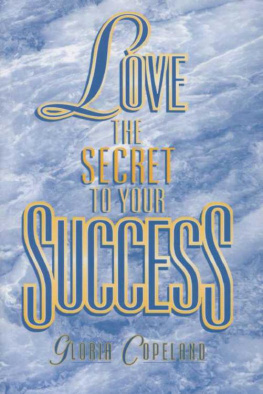Gloria and Joe
The Star-Crossed Love Affair of Gloria Swanson and Joe Kennedy
Axel Madsen
Contents
Part One
Part Two
Acknowledgments
I could not thank all the people who took time to help me prepare this bookand not all would want their names to appear. Besides expressing my gratitude to Gloria Swanson herself for the interviews she accorded me in 1974, let me thank at least:
In Los Angeles: Mel Froman, Michael Hargraves, Betty Lasky, Viege Traub, and the librarians at the Academy of Motion Picture Arts and Sciences.
In Paris: Philippe Labrousse, Emmita de la Falaise, and Georges Hoffman.
In New York and Chicago: Harry Parish and Mr. and Mrs. William Petersen.
In Solebury, Pennsylvania: Dr. Edwin Carlin.
A XEL M ADSEN
Carversville, Pennsylvania
October 1987
Chapter 1
The Savoy Plaza
Lady, lady, should you meet
One whose ways are all discreet,
One who murmurs that his wife
Is the lodestar of his life,
One who keeps assuring you
That he never was untrue,
Never loved another one.
Lady, lady, better run.
DOROTHY PARKER
He was surprised at how tiny she was; she thought he didnt look like a banker. She was amused by his Boston accent; he was shocked when she told him her five-year-old adopted son hadnt been christened. She surprised him by ordering steamed string beans, braised celery, and zucchini; he ordered shrimp cocktail to start with, and told her he had three boys and four girls.
Gloria Swanson was staying at the elegant new Savoy Plaza Hotel on Fifth Avenue across from Central Park South. She was in New York this last week of November 1927 to show United Artists sales and distribution chiefs her daring screen adaptation of Somerset Maughams famous short story that ran on Broadway for eighteen sold-out months as Rain. She was convincedand a sneak preview in California had confirmed her most optimistic expectationsthat in this picture, starring Lionel Barrymore and herself, she had a hit. She was hundreds of thousands of dollars in debt, and lawsuits for the nonpayment of bills were piling up, but on the way into the Renaissance Room with her manila envelope under one arm, she had told the matre d to put the check on her bill. If the gentleman asked for it, the headwaiter should say the lunch was compliments of the management.
Joseph P. Kennedy mentioned a few familiar names. He had looked forward to meeting her. They mentioned the unusually mild weather, the fact that this was the only day they were both free, small worlds. They both knew First National Pictures Bob Kane, of course. At her time at Paramount, Robert Kane, Sidney Kent, and Sam Katz were known as the front office KKKs.
The matre d helped them get rid of the oversized menus. She was returning to Hollywood Saturday, she said.
People at nearby tables couldnt take their eyes off her, he noticed. She lit up the room. At twenty-eight, she was the embodiment of the vivacious, secure, and intriguing woman. Her screen image of the new, sophisticated 1920s female, combined with her ambitious, aggressive, managerial nature, had made her the top box-office magnet. Thousands struggled for a glimpse of her at premieres; fans deluged her with 10,000 letters a week. Her flamboyant fashions and innovative hairstyles, even her chin mole, were copied by millions of women. Diminutive (she stood all of 5 1), she was every inch and every moment the star. Over the long-distance telephone, Kane had asked him if he were free for lunch Thursday. She was looking for financing for her next film, and possibly for a tie-over loan.
She guessed her luncheon partner to be in his late thirties. He was broad-shouldered and athletic in his three-piece pinstripes. His freckled face and toothy smile were still boyish, and the horn-rimmed glasses gave him something of Harold Lloyds quizzical innocence. If she was on her guard, it was because the name Joseph P. Kennedy had figured among the industry chiefs who had condemned her for filming the Somerset Maugham story. On the phone, Kane had confirmed that Joe Kennedy was a distributor, but also that he was a banker and a consultant to several Wall Street investment houses just starting to get into motion pictures. Maybe he was ready to give Bank of America a little competition. Since youre going to New York, Ill give him a call. Bob Kane had also told her to relax. Everyone producing pictures was in debt. The money always came in eventually.
My wife and children were impressed when I told them who I was having lunch with, he said, smiling. He looked across at the face that conformed to no known specifications of beauty but photographed successfully from any anglethe chiseled chin, dished nose, and curious almond-shaped eyes (blue as splinters of heaven, a fan magazine effused) that somehow blended into a bizarre loveliness. She had an elfin quality and a vivid, lively magnetism that was so arresting that nobody had much to say in her presence. Her daughters name was also Gloria, he noted. What was her little boys name?
Joseph, after my late father. Both Gloria and I have called him Brother for so long the poor boy thinks its his real name.
He told her his eldest son was named Joseph, too, after him. He couldnt help noticing how the rest of the luncheon guests watched themwatched herand pretended not to hear what they were saying.
She handed him the contents of her folder and thought he looked relieved to have something to study. At Bob Kanes suggestion, she explained, she had had her accountant prepare a memorandum outlining proposals by United Artists and Bank of America for financing Rockabye, her next film. She would be grateful if he would tell her which offer seemed the better, and if he had an alternative proposal of his own.
Behind the movie stars dark, husky voice, determined chin, and regal sparkle, he guessed at a chaotic existence, days tied up in knots with her press agent, script manager, production chief, wardrobe designer, secretaries, maids, and bill collectors. Even though she was going to release Rain under the title Sadie Thompson, she was playing with dynamite. The Maugham story about a puritanical South Seas missionary who tries to reform a prostitute only to fall prey to her spunky charms was the property every studio had itched to do and every actress with a brain and a figure had dreamed of doing. The two-year-old decency code, however, automatically banned story material that ridiculed the clergy, and it warned producers to be extra careful when depicting women selling their virtue.
He asked about the people running her company, about her accountant.
Irving Wakoff, she said.
He didnt know the accountant to the stars. Scanning the papers, he said nobody in Hollywood knew how to draw up a balance sheet that answered bankers questions. Certainly nobody knew how to depreciate, to amortize, to capitalizethe very things that in any other business spelled the difference between success and failure.

















